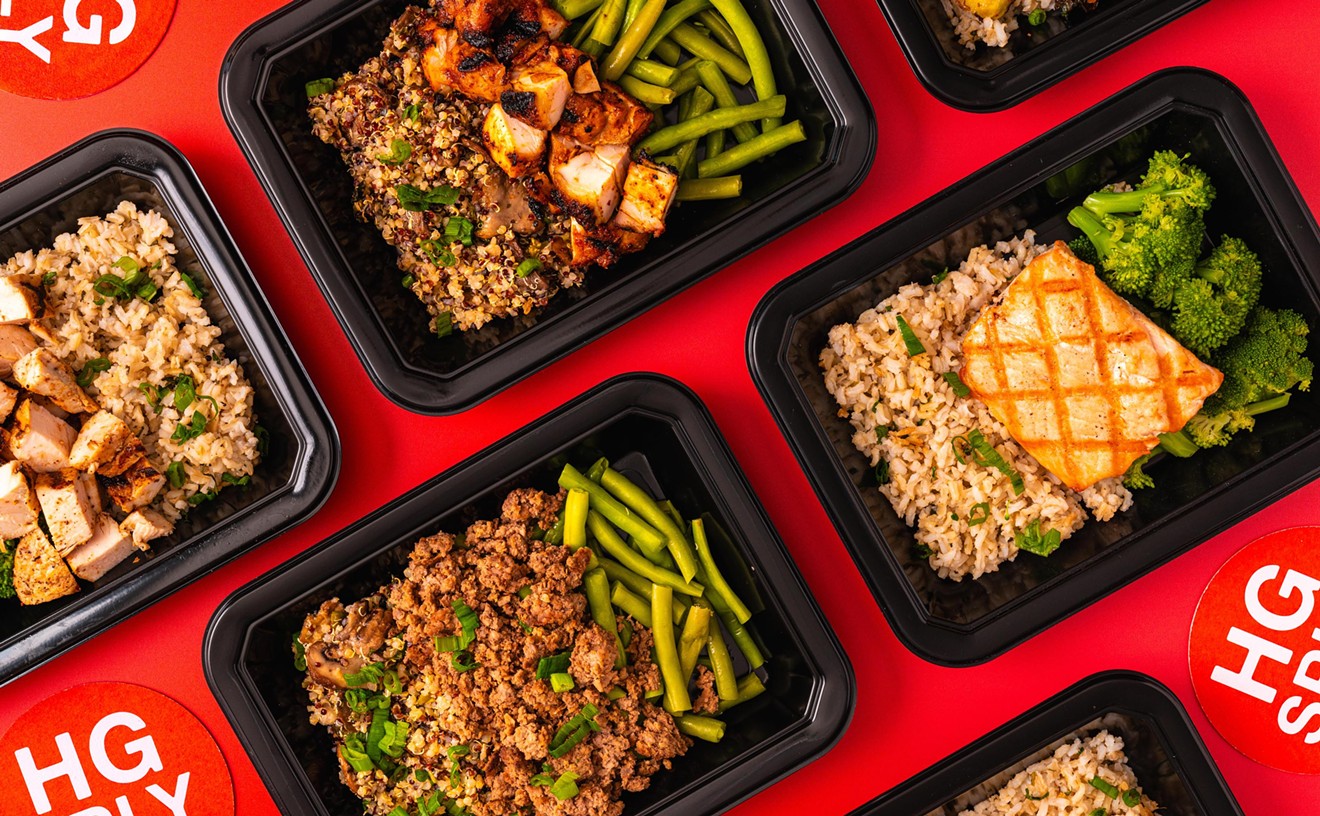There's just something compelling about those who struggle--vainly--toward the summit where greatness awaits. Evel Knievel completed hundreds of risky motorcycle jumps, but we remember him for near fiasco at Snake River Canyon. The painful losses of quarterback Y.A. Tittle or the late 1970s Houston Oilers stand as monuments to forlorn hope. The gambler who risks all on one roll, that guy from the movie Rudy, the Jamaican bobsled team: Foolish endeavors simply capture our imaginations.
This week's Burning Question emulates such heroic endeavors against probability and reason--particularly against reason. Few individuals, you see, understand wine intimately. Well, if you consider regurgitation after an evening chugging wine from a jug an intimate experience, the numbers rise considerably. Experts spend years learning the nuances of region and grape. Most consumers, however, approach Sigel's or Central Market with a certain amount of trepidation as they try to reconcile a personal catalog of "red," "white" and "brown paper bag" wines with the impervious jargon of merchants stocking thousands of bottles. "It's easier to become a neurosurgeon than a master sommelier," says Todd Lincicome, wine director at Al Biernat's. "There are only 50 master sommeliers in the U.S." By comparison, 3,830 neurological surgeons practice in this country. Vineyards exist in 75 countries, producing more than 100,000 different wines that vary according to soil, grape, handling, aging process and vintage.
"It's taken me 10 years to become the kind of wine buyer I am," Lincicome concedes, "and I still walk into wine shops and say, 'What's this?'"
In attempting to explain the mysteries of buying wine, then, the Burning Question crew weighed decades of study against our time-tested method of selecting wine: matching an interesting label with an attractive price. Hell, just put it on sale and we'd buy a neatly attired bottle of fermented date juice.
Considering the haughtiness associated with vinification, it's somewhat surprising that wine experts empathize with the average consumer. "A lot of people feel uncomfortable when there are literally thousands to choose from and they don't know one from another," says Tim Permenter of Best Cellars. "With new vintages every year it all changes. It's damn near impossible to keep up with it all." They understand that inexperience or intimidation drives some people to familiar wines, from the ubiquitous Gallo varietals to barely fermented "beginner's wines" like Lancer's and Blue Nun.
Those with greater determination to conquer the industry consult publications such as Wine Spectator for recommendations. Yet Lincicome warns novice drinkers away from such a strategy. The complexities of a wine given a critic's score of 95, he points out, will be lost on someone accustomed to a more accessible, more uniform product. "Start low and build yourself up," he advises, a thought echoed by Loni Heyn of Pogo's Wine & Spirits: "If you're just starting, go with beginner's wines. A Beaujolais has forward fruit and the least amount of tannins; pinot noir is light in body. Progress to merlot, Rhône and cabernets, then go back to what you like best."
That, of course, requires quite a bit of drinking. "You have to taste over and over and over," Heyn confirms.
That's pretty damn good advice, actually. Just think of it: a realm where consumption leads to expertise, where inebriation masquerades as sophistication. The Burning Question crew spent an entire week exploring this realm, gaining knowledge and refinement by the gallon. Apparently--and we only realized this in the aftermath--the sophisticated set miss a lot of work and urinate pretty much anywhere they please.
Um...from what we've heard, anyway.
Ultimately, buying wine involves not mystery, but persistence and a mollified ego. It requires time, experimentation and a willingness to appear foolish. "People need to learn on their own," Lincicome says. "I think you should focus on talking to people in the wine shops, explain the situation, come clean with them. If you don't know what you're doing, walk in and say, 'I don't know what I'm doing.'" Naturally, when we tried this approach, both merchants and sommeliers assumed as much before we ever uttered a syllable. We sent our editor out to test the ignorance approach, as well. He spoiled the experiment, however, by heading straight for the boxed-wine section. Yet Heyn at Pogo's also urges customers to ask questions. "And the most important thing if you don't like a wine," she adds, "is to tell me what you didn't like."
Unfortunately, a conflict often exists between the wines we appreciate and the wines we can afford. The average cost of popular cabernets jumped 28 percent between 1998 and 2001. Wine served by the glass at restaurants increased more than a $1 a pop over the same period. "The biggest challenge is finding a wine that's tasty for under $15," Heyn concludes.
Knowing that, we still purchase largely according to price. Yet that's not truly an obstacle, either. "There's just too much great wine made all over the world," Permenter points out. "Our best-selling wine is a Spanish red, and it's $6 a bottle." Best Cellars specializes in wines priced at $15 or less, but most places stock good wines at lower price points. Australia, Spain, Argentina, Chile, Portugal and Italy produce the best inexpensive wines, according to the experts.
"Los Vascos is made by Lafite Rothschild," Lincicome explains, loosely comparing a $8 Chilean 2000 cabernet with a $325 2000 French Pauillac. "It's not the same quality of grape or barrel, but knowledge is knowledge."
Yep, there's nothing like attempting the impossible, treading where the brave dare not follow. The answer to this week's Burning Question is really quite simple: Drink regularly, experiment, ask and learn. Remember, you are drinking for a purpose.
And, Lincicome explains, "when you lack knowledge, you have very little choice."










